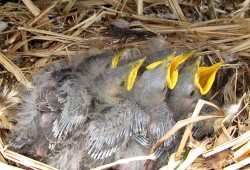Not to ignore the current discussion about MHC’s 3-year term president, or the political situation in the country…I’ve read so many good books recently that I couldn’t resist … I had to tell you about them. So here are some suggestions for good summer reading. Coincidentally, three of them take place during the Blitz in London, which ties in with Citizens of London that was reviewed at reunion…
Crooked Heart by Lissa Evans
Noel a 10-yr old orphan, lives very happily with his godmother Mattie. Noel is a bit odd, brainy, and has little in common with children his age. The two were sympatico on all issues. Unfortunately, she becomes senile, wanders off and dies.
Most of London’s children are evacuated to the countryside as war comes closer, as is Noel. He is placed with Vera Sedge, a horse of a different color from Mattie. She is a desperate woman, who is trying to survive by any method possible.
Evans paints a realistic and humorous picture of war-time Britain with its indignities, pettiness and multiple levels of dishonorable conduct. A very “good read” plus much more.
The War That Saved My Llife by Kimberly Bradley (for older children)
Ada was born with a club foot. Her mother mistreated her terribly. When word spread that London would be bombed by the Germans, and that children would be evacuated to the country, Ada realized that this was her chance to escape from an unbearable life. She talked Jamie, her younger brother, into escaping with her and they snuck onto the train, leaving London. Of course, their names were not on the list, so there was no one to pick them up. But the warden talked a very reluctant “Miss Smith” into taking them in.
This is a wonderful story of grit and determination. You may not be interested in reading a book written for children but this is indeed a great story.
Everyone Brave is Forgiven by Chris Cleave (Cleave is the author of Little Bee.)
Although The Light We Cannot See is still in first place for fiction I’ve read in the last few years…this comes pretty close. Everyone Brave is Forgiven covers the years from 1939 to 1942. Germany has invaded Poland. Great Britain declares war on Germany. Mary leaves her finishing school immediately for the War Office – to sign up to be a spy. Tom decides to stay put. But his roommate, Alistair, signs up. The three are thrown together, and both Tom and Alistair fall in love with Mary. Here is a heart-wrenching love story set in the midst of an over-whelming battle field.There was so much to the novel – the characterizations, the surprising racism, the different levels of society, the unknown history. But the conversations stood out for me. Cleave is relentless with his clever twists and turns.
Don’t miss this one.
Two weeks ago, I was loaned two books that couldn’t be more different…It Can’t Happen Here (1935) by Sinclair Lewis and Sir Henry (1955) by Robert Nathan. The first is written as a result of the concern of a fascist take-over in Europe (1930s). As worry about bizarre things happening in our own government increase, this book is particularly appropriate. The old fashioned style turned me off and so I didn’t actually read much of it, but it rang a bell. Juxtaposed with it was Nathan’s Sir Henry. This is so quietly humorous, I loved it. Since A Portrait of Jennie, I’ve been a Nathan fan. Sir Henry tells of the exploits of a knight-errant in England, slaying dragons, et al. A wonderful anti-dote to thinking about our world situation. It’s delightful!
What are you reading?
Sue Wheatley Carr




You must be logged in to post a comment.